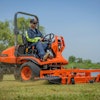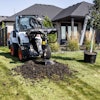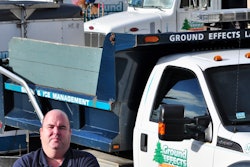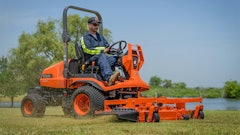There was a book written several years ago entitled "No Man's Land." It talks about the struggles many small businesses face when they become too established and big to still be considered small, but are not quite large enough to really be considered big. How you define the nerve-racking no man's land will vary by industry. For ours, it's starting to become more apparent.
The phenomenon first started to emerge several years ago with equipment dealers. Recognize that there are far fewer dealers than there were 10 years ago. Why? Being a sales-and-service dealer is quite expensive. You need a decent facility with warehouse space. You need substantial inventory, tools, supplies and training. You're at tremendous risk due to weather-driven market volatility. Tight profit margins don't provide for much wiggle room. Thus, big dealers have an advantage because they have more buying power, which helps generate more gross profit dollars, which helps recover all of that overhead.
What you're now starting to see is a marketplace where there are either small repair shops or mega-dealers (often with multiple locations). The middle-of-the-road dealer—with sales in the $500k to $1.5 million range, generally speaking—is under enormous pressure.
Now this no-man's-land phenomenon is starting to have an effect on landscaping companies. This has been shaping up since about 2009, which is why there have been quite a few mergers and acquisitions over the past several years. Our cover story, Sean Bishop of Ground Effects Landscaping, discusses how this trend is impacting his business on Massachusetts' South Shore. His company has doubled in size over the past five years, now doing around $2 million a year. But Sean thinks that's nowhere near enough. He feels like they have to grow to at least $5 million in order to survive long-term.
The big issue for Sean's company is finding employees. That's hard for a mid-size company to do because it's hard to provide good benefits and year-round employment. Sean is looking at ways to address this.
Do you feel like your company is in no-man's land? If so, are you looking at ways to address it? There are various escape routes. Sean Bishop is looking at diversifying. Other contractors and dealers have merged with other companies or simply sold out. Others have scaled back down, many of whom are now happier and more profitable as a result.
Many others will simply continue grinding it out. Some will survive, some will not. Chances of survival can be greatly affected by your given market area and competitive set. Your chances are also greatly affected by your ability to articulate a vision for your company, and rally your employees around that vision. If you feel like you're in no-man's land, but have a vision and strategy for how to escape, we'd love to hear it.




















